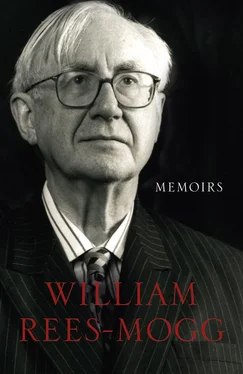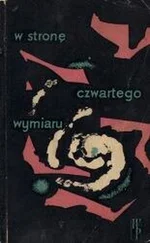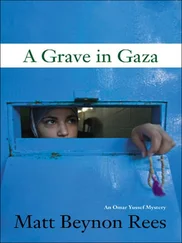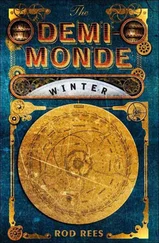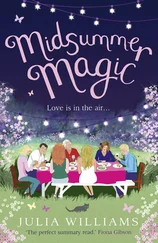My own contributions were marked by my interest in a classical and even stoical human culture. I persuaded the society to have a play-reading session in which we read Addison’s Cato , on the grounds that Addison had been an Old Carthusian. Cato is a play which justifies suicide in a noble cause, and that may have influenced my choice; I think it was more the stoicism which attracted me.
’Tis not in mortals to command success,
But we’ll do more, Sempronius; we’ll deserve it.
I still feel an attachment to the play, which has many connections for me. It is a link to the Thackeray Society, to Russell and Clive Wigram. It is a link to my youth, and what it was like to be sixteen. It is a link to George Berkeley, my favourite Christian philosopher, and to Alexander Pope. Both Berkeley and Pope were present on the first night the play was performed in April 1713.
On that first night, the part of Marcia, Cato’s daughter, was played by Anne Oldfield, the leading actress of the period from 1710 to 1730. I think Pope fell in love with her and was rebuffed, since he attacked her more than once in barbed verse. She had an illegitimate son, Charles Churchill, who married Maria Walpole, Robert Walpole’s daughter by Mary Skerritt, also born out of wedlock. My son-in-law, David Craigie, is a descendant of that romantic match between an illegitimate Churchill and an illegitimate Walpole. For me, Addison’s Cato is ringed about with the happy coincidences of life. Four of our grandchildren are descendants of Anne Oldfield.
In the early autumn of 1944, I discussed with Robert Birley the prospect of going to university. I knew that I wanted to go to Oxford. I was drawn by its romantic and political character and slightly repelled by the intellectual puritanism of Cambridge. I had no strong family connection with any particular Oxford college; my father had gone to University College, but his uncles had gone to various other colleges, and my ancestor John Rees had gone to Jesus. Birley recommended that I should try for a scholarship at Balliol, his own old college; he had himself won the Brackenbury Scholarship, which had been held by various other well-known figures, such as Cyril Connolly and Hilaire Belloc. In terms of prestige, the Brackenbury was then the best known history scholarship at Oxford.
I was only just over sixteen and had been a history specialist for no more than a term and a half. Birley warned me that I was too young and did not really know enough history to get a scholarship, but suggested I should enter for Balliol, to see what the examination was like. I was delighted with the challenge.
The examination was taken over a couple of days, and the candidates stayed in college. I remember how cold it was, with an early December snow covering the paving stones outside the Sheldonian. I took with me a copy of Richard Hooker’s Ecclesiastical Politie , a first edition which I had bought from George McLeish of Little Russell Street. I imagine that I found an opportunity to work in some quotation from Hooker, intended to show the breadth of my reading. The set essay was a quotation from Shakespeare’s King Henry VIII , in which Cardinal Wolsey says to Cromwell: ‘Fling away ambition, by that sin fell the angels’. At the age of sixteen, I was not at all willing to fling away ambition, which was my ruling passion at the time. I wrote an essay defending ambition; how I got over the problem of the fall of Lucifer I do not now remember.
There was an oral interview, in which my confident assertions were gently probed. Two young Balliol dons, still serving in the army, took part in it: Richard Southern, a serious-minded medieval historian, who later became the President of St John’s, and Christopher Hill, the Marxist historian of the seventeenth century, who later became Master of Balliol. Southern was too ascetic, too serious, too medieval for me, and I was too frivolous, too partisan, too eighteenth-century for him. I was never to find it easy to learn from him, which was my fault; he never found much pleasure in trying to teach me, which was also my fault, since he was both a good historian and a good man.
Christopher Hill was much more my type of historian. As a good Marxist he looked for broad explanations of historic events. He saw, and taught, history as a series of challenges and responses, which could be explained by identifying underlying social and economic forces. He had an ebullient Celtic temperament. Although we were on different sides of the ideological fence, and disapproved of each other quite strongly, we were also quite fond of each other in an adversarial way. I have always been grateful for his Marxist teaching; Marxism is only one of the ways of looking at history, and is only partly true, but it is a form of analysis all historians need to have experienced at some point.
The history dons sat round the fire in the Dean’s room, and made me feel welcome; I knew I had done quite well. I was back in Somerset on my Christmas holiday with my parents when the telegram arrived, telling me that I had won the Brackenbury. I had won it, as I now think, because I had the basic qualities not of a good historian, but of a good journalist. I had trenchant opinions; I wrote with vigour at short notice on any subject; I was manifestly clever, without being particularly consistent, accurate or profound. I showed promise. Indeed, my whole educational career was based on showing promise.
When I received the telegram I was filled with delight; I felt like Marlowe’s Tamburlaine. ‘Is it not passing brave to be a King, And ride in triumph through Persepolis?’ Was it not passing brave to have won the Brackenbury Scholarship at the age of sixteen? I have never felt such an uprush of pleasure at any subsequent success, at becoming President of the Oxford Union or Editor of The Times , agreeable though success always is. It is the moment of success which gives the greatest satisfaction; the life of a Prime Minister must be anxious and exhausting, but the hour of appointment, or of winning a General Election, must feel very good. The hour I got that telegram from Balliol was good in that way. Of course, if one is going to have a success, sixteen is an enjoyable time to have it.
I paid for it, in a way I have not had to pay for any subsequent success. I went back to Charterhouse in the January, having achieved a Balliol scholarship and having at least a couple of terms of relaxation ahead of me. The old depression came back, more severely than it was ever to come again. I sat in my study at Verites, unable to concentrate, unable to take pleasure in anything, wholly lacking in energy, let alone zest. I had not expected to react so badly to something which had given me so much delight. The black mood passed as spring came, but for a couple of months I felt lower than I had felt high on receiving the telegram.
That year I edited The Carthusian , which was a senior position in the school. I spent a good deal of my leisure time with Clive Wigram, on whose judgement I greatly relied. I remember a walk with him when we discussed the relative evils of the Hitler and Stalin regimes. I said that Stalin’s was the more totalitarian of the two, and that a private individual had a better chance of preserving some normality in Germany rather than Russia. Clive agreed, but pointed out that such an option would not be open to him, because he was a Jew, and Hitler would kill him. At that time, early in 1945, we still had no real knowledge of the Holocaust, but Jews knew that Hitler was a Jew killer. It was only when British troops liberated Belsen in May of 1945, and the first photographs of the starving or the dead appeared, that we began in Britain to realize that the evil that had happened was even worse than the war itself.
Читать дальше
